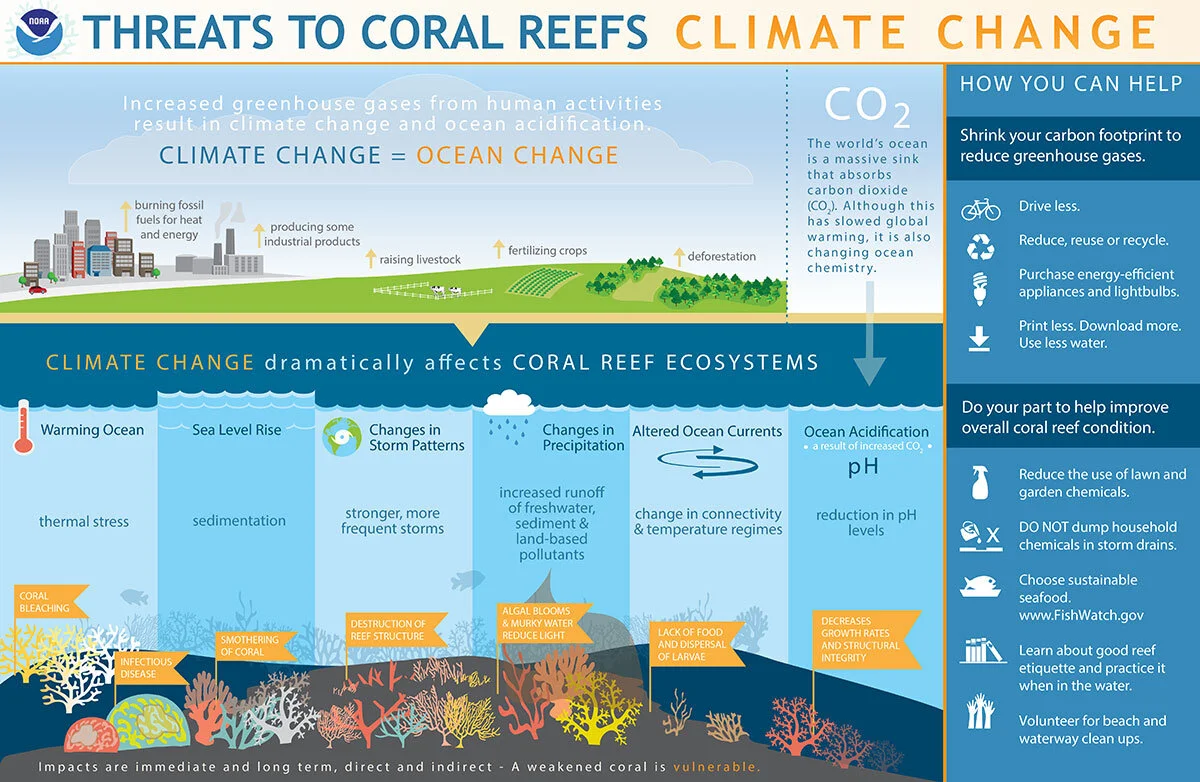Climate change poses the largest threats to the health of coral reefs. It has been made clear that climate change is real and causing atmosphere and ocean temperatures to rise. The primary cause of this is greenhouse gasses, produced by the burning of fossil fuels, the raising of livestock, deforestation, fertilizing crops and more. Climate change is responsible for a multitude of problems which add up to cause detrimental effects to the ecosystems of coral reefs.
Slight increases in temperature can lead to mass bleaching of coral, and increase the risk of coral disease outbreaks. Sea level rise caused by melting ice caps creates sedimentation runoff from previously dry land which can smother the coral. More frequent and stronger storm patterns due to climate change can lead to the outright destruction of coral. A combination of sedimentation and more fresh water can cause Algae blooms which reduce the light levels in coral reefs. Changing ocean currents can result in a lack of food for coral colonies and make it difficult for coral larvae to spread out. Carbon dioxide absorbed by the ocean lowers the ph levels in the ocean. The elevated acidity of the water slows growth rates of coral and reduces the strength of coral skeletons.
In response to this, scientists are utilizing ROV’s as a significant observation tool that will help research the health of coral. ROV’s are a cost effective and accessible platform which provide a level of precision that would be virtually impossible to achieve through other methods such as divers.

